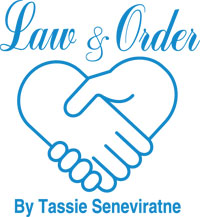News
Evolution of governance
View(s):The 17th century philosopher Thomas Hobbes famously wrote that human life in its natural state is “solitary, poor, nasty, brutish, and short.” Hobbes argued that our instincts tend toward war in a bid to attain dominance over others; thus the establishment of government would be necessary to maintain law and order.
 The evolution of governance is a process that started in the early days of man. It began since the period man saw the need to live in groups. Mighty men were able to organise the masses and share them in various groups. The sharing was done according to the strength of the masses, their mental capacities, and intelligence.
The evolution of governance is a process that started in the early days of man. It began since the period man saw the need to live in groups. Mighty men were able to organise the masses and share them in various groups. The sharing was done according to the strength of the masses, their mental capacities, and intelligence.
Governance has been practised in one way or another since civilisation began. For examples of advanced governance principles, one could look at the organisation of the olden days Roman Catholic Church, military forces and ancient Greece. Great as these examples have been, the Industrial Revolution brought about a drastic change. There arose a sudden necessity to develop a more holistic and formal governance theory. It changed how businesses, as well as individuals raised their economy and organised labour and production of goods.
Charles Babbage (1729-1871), a renowned professor in mathematics at the Cambridge University, discovered that manufacturers were relying on guesswork and urged them to utilise mathematics and science to be more accurate and productive.
Robert Owens (1729-1858) is regarded as the father of personnel management because of his approach and focus on employee welfare. He introduced cooperation and trade unions. It was accepted that employee welfare could determine their performance to a large extent. This encouraged the training of workers, education for their children, canteens in the workplace, shorter working hours, among others.
One could now see that governance started with civilisation. What we now see are advanced and improved governance thoughts and theories. We have democracy, monarchy, oligarchy, authoritarianism and dictatorship adopted by different countries. Sri Lanka has adopted democracy as its form of governance. Democracy is defined as government of the people, by the people for the people.
Our Constitution is titled ‘The Constitution of the Democratic Socialist Republic of Sri Lanka’.
Article (1) reads as: “Sri Lanka is a Free, Sovereign, Independent and Democratic Socialist Republic and shall be known as the Democratic Socialist Republic of Sri Lanka.
Article (3) reads as: “In the Republic of Sri Lanka, sovereignty is in the People and is inalienable. Sovereignty includes the powers of government, fundamental rights and the franchise.”
All that is well and good. But ‘Eternal vigilance is the price of liberty’. More so now, as our government is sliding into unprecedented and undeterred dictatorial actions betraying the sovereign people.
This is where the opposition in a democracy plays an important role. Unfortunately the main opposition party, the UNP, is in disarray within itself.
A seminar organised in Rome by the Italian Parliament in June 2014 under the auspices of the European Centre for Parliamentary Research and Documentation (ECPRD) tackled the question of rules and good practices developed and implemented by parliaments to guarantee the openness and transparency of decision-making procedures and citizen’s participation in this process. It also focused on the use of the new technologies and social media to scrutiny decisions.
It is clear that there is a need for a debate on promoting dialogue between the majority and the opposition, in the broad sense of the term, to explore new forms of consultation. There is also a need to take this debate further to include the institutionalisation of the extra-parliamentary opposition in one form or another.
(The writer is a Retired Senior Superintendent of Police. He can be contacted at
seneviratnetz@gmail.com)

